Archive | Blog RSS feed for this section
Economics
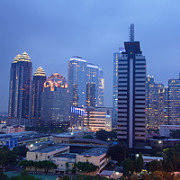 Finance sector development
Finance sector development
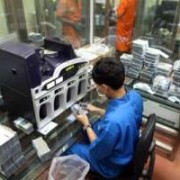 Economics
Economics
 Social development and protection
Social development and protection
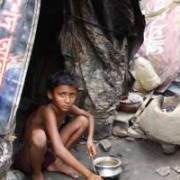 Governance and public sector management
Governance and public sector management
 Finance sector development
Finance sector development
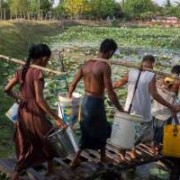 Finance sector development
Finance sector development
 Finance sector development
Finance sector development
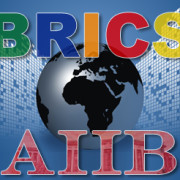 Finance sector development
Finance sector development
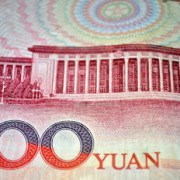 Social development and protection
Social development and protection

Can president-elect Joko Widodo transform Indonesia’s economy?

Indonesia's president-elect Joko Widodo (Jokowi) has declared he aims to push the growth rate of the economy above 7% a year. The growth rate has been running below 6% a year, and the World Bank and IMF predict that it will continue at 5.6% and 5.8%, respectively, in 2015.
Banking integration in ASEAN gathers pace

The ASEAN Economic Community, planned to come into effect in 2015, is expected to liberalize goods, capital and skilled labor flows in the ASEAN region. While there has been considerable progress in the area of trade integration, financial integration still lags behind. The ASEAN Banking Integration Framework, which aims to liberalize the banking market by 2020, could help pave the way for further integration and the entry of ASEAN banks into regional banking markets.
Improved flight connectivity could spur tourism and economic growth in the Pacific region

Tourism is one of the most promising growth sectors in the Pacific region. The number of tourist arrivals has more than doubled in the past decade, from around 600,000 in 2002 to 1.3 million ten years later. The potential for tourism in the Pacific is substantial as many islands offer unspoiled nature and scenic landscapes. However, travel to the Pacific can be inconvenient. There are only 35 direct flights from countries outside the Pacific to countries in the Pacific and the flight frequency is low. New research by ADBI shows that the number and frequency of direct flights is an important determinant on the number of tourist arrivals in the Pacific. The research also highlights that the potential of receiving large numbers of Asian tourists remains untapped. However, realizing the great potential of tourism will not only depend on better connectivity, but also on the capacity of Pacific region countries to respond to the growing demand.
Asia and Pacific region post-2015 priorities, MDG8, and Global Partnerships

Any contemporary story on development in the Asia and Pacific region begins with reflection on the massive gains achieved in the fight against poverty. The incidence of people living on less than $1.25 a day fell from 54.5% in 1990 to 20.7% in 2010, with the number of extreme poor declining from 1.48 billion to 733 million. This precipitous decline in poverty incidence has been accompanied by tremendous gains in access to health and education.
Southeast Asia’s energy subsidies are a tax on development

Policy reforms to resolve inefficiencies are a major yet underappreciated source of economic growth. One obvious example is the presence of large energy subsidies in the developing world, which are common among oil-rich countries such as Nigeria and Venezuela. Yet energy subsidies remain both large and seemingly firmly entrenched even in some Southeast Asian countries, where net energy exports are rapidly diminishing.
To invest, or not to invest? That is the problem in Myanmar

Myanmar opened a new chapter in its history in November 2010 when it adopted its open-economy policy. Since then, an impressive array of reforms has been implemented. Excitement about this transition has been widely shared among political, economic, and investment communities around the world. However, Myanmar’s sustainable and inclusive growth depends on it maintaining this momentum during its transition—particularly inflows of foreign direct investment.
Increased lending to SMEs aids financial stability

A key lesson of the 2008 global financial crisis (GFC) was the importance of containing systemic financial risk and maintaining financial stability. At the same time, developing economies are seeking to promote financial inclusion, such as greater access to financial services for low-income households and small firms, as part of their overall strategies for economic and financial development. This raises the question of whether financial stability and financial inclusion are, broadly speaking, substitutes or complements. In other words, does the move toward greater financial inclusion tend to increase or decrease financial stability?
The NDB and AIIB initiatives sound a wake-up call for global finance

July 2014 marked the seventieth anniversary of the Bretton Woods conference, which laid the foundation for the post-WWII international financial system. The conference established the IMF to stabilize the world economy and the World Bank to finance post-war reconstruction. Both have evolved into pillars of present-day global finance.
Globalizing the RMB? Beijing appoints three new clearing banks in London, Frankfurt, and Seoul

In the span of three weeks from late June to early July 2014, the central bank of the People’s Republic of China (PRC) appointed three new RMB clearing banks successively for London (China Construction Bank), Frankfurt (Bank of China), and Seoul (Bank of Communications). The three new clearing banks join the existing group of RMB clearing banks of the Industrial & Commercial Bank in Singapore: and the Bank of China for Hong Kong, China; Macao, China; and Taipei,China.
Preparing for life after the MDGs

The establishment of the Millennium Development Goals (MDGs) by the United Nations in 2001 was a defining moment. It rallied a global effort in the fight against poverty, hunger, and disease, while promoting universal education, gender equality, and environmental sustainability.


Search
Subscribe / Connect to Asia Pathways
Subjects
- Agriculture and natural resources
- Blog
- Capacity development
- Climate change
- Economics
- Education
- Energy
- Environment
- Finance sector development
- Gender
- Governance and public sector management
- Health
- Industry and trade
- Information and Communications Technology
- Infrastructure
- Miscellaneous
- Population
- Poverty
- Private sector development
- Regional cooperation and integration
- Sanitation
- Social development and protection
- Transport
- Uncategorized
- Urban development
- Video Blog
- Water




Recent Comments